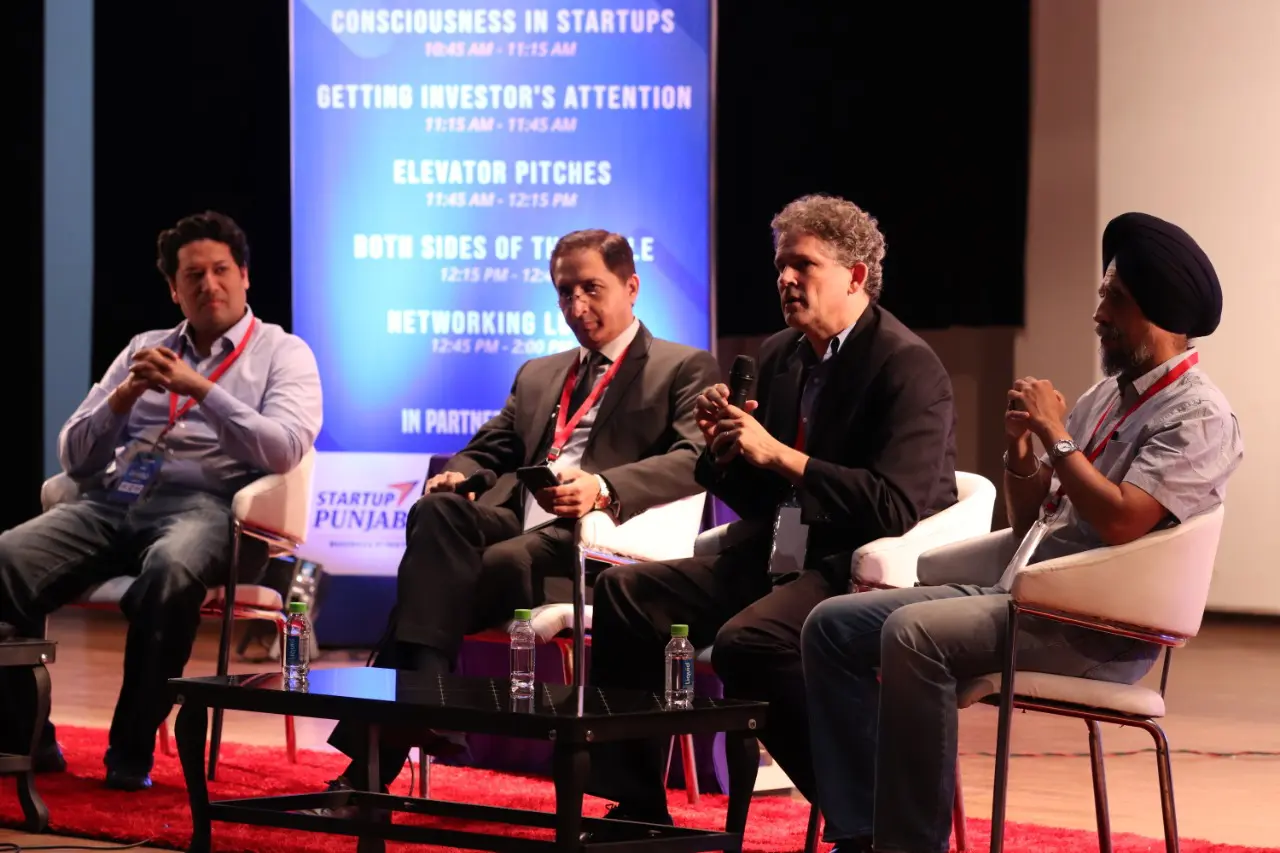All About Grabbing Investors’ Attention in 60 Seconds

CANNABLE 3.0 featured a panel discussion on Getting Investors’ Attention in 60 seconds. The panel consisted of Karan Mittal from Velos Partners, Erik Azulay from Nexus, American Centre and Munish Jauhar, Founder of GreyCell Ventures. It was moderated by Ashok Mehta, Founder of Emmbros Automotives.
Erik started the discussion by explaining what an elevator pitch is all about. He simply said that it is a 30-45 second pitch that you make to an investor highlighting only the essential points. The aim is to gain attention such that the investor invites you for a detailed discussion later on. Karan further added by saying it’s important to explain exactly what your business is all about in crisp wording.
On asking where should an elevator pitch ideally be made, Munish said that it is to be made anywhere you see an investor, especially in conferences where it is possible to reach out to a number of investors. The determined entrepreneurs will always make it a point to walk up to each investor and make their best elevator pitch. Another essential component is passion, which needs to be reflected in the delivery of the pitch.
Erik then went on to talk about the essential mantras when it comes to elevator pitches. Firstly, he said that pitches should be customized keeping in mind the investor you approach and the assistance you require from them. Secondly, you must mention your USP which can help you stand out from the other entrepreneurs that the investor meets. Thirdly, it is important to keep the pitch precise and to the point. Spending time on unnecessary information means that the important points will have to be squeezed in the last 10 seconds or so. Fourthly, the pitch must be easy to comprehend because it is possible that the investor may not have expertise in your target sector. Fifthly, do not try to squeeze 3 minutes worth of information in 30 seconds, else you will end up speaking too fast for comfort.
Munish went on to explain that as an investor, it is only the first few lines that matter. If a startup is able to engage the reader within the first couple of sentences, there is a good chance they will listen further. On the contrary, if important information is explained towards the end, you may have already lost the investor’s attention by then.
The panel further answered questions from the audience such as the ideal time to enter into entrepreneurship, how entrepreneurship is a risky business and success is not certain and how one can learn from pitches of successful companies in the same field.
Watch the session video here:






